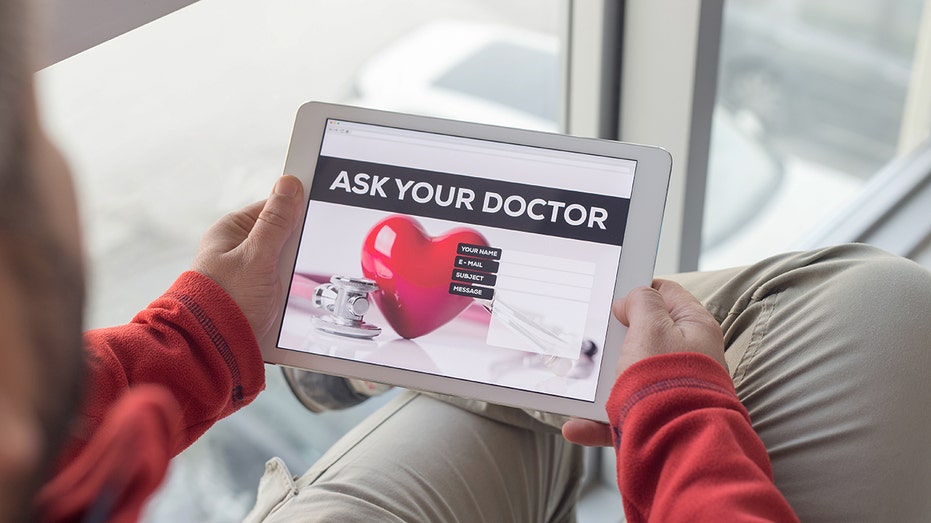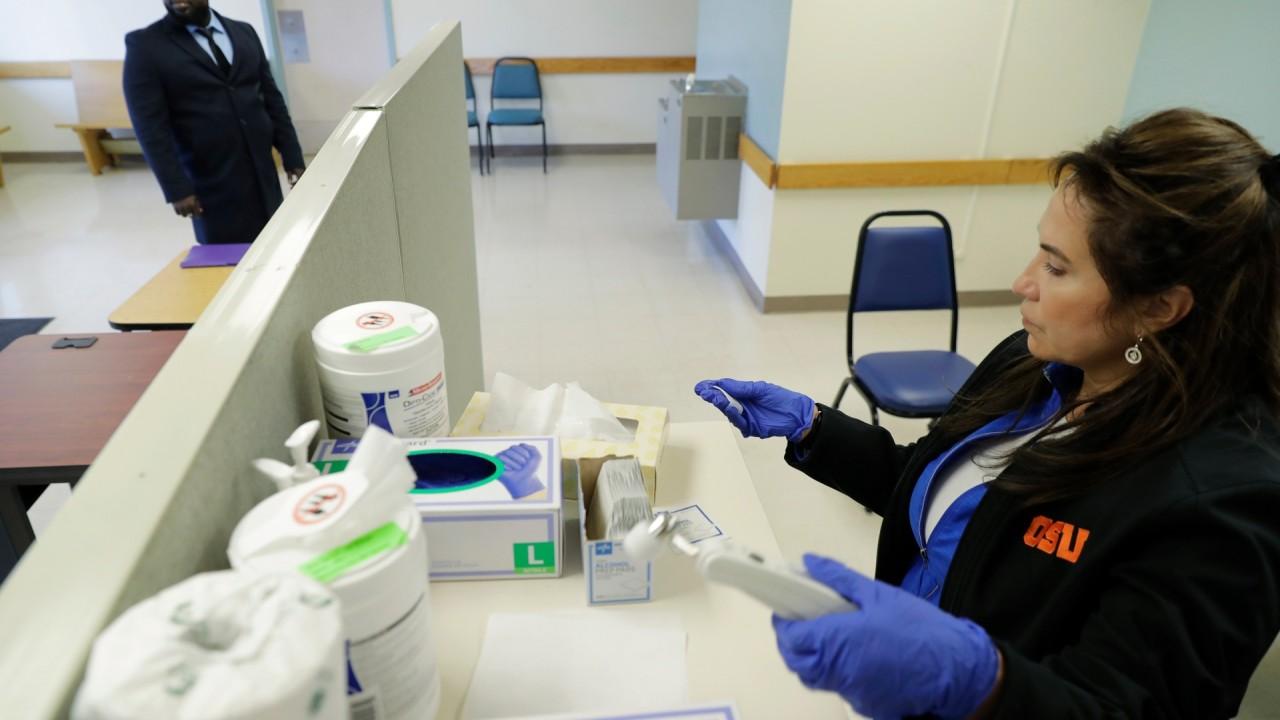Coronavirus pushes mental health counseling online
Psychological effects of quarantine include anger, anxiety, and in some cases, PTSD.
Getting therapy remotely is the new normal for many Americans coping with mental health issues while in quarantine.
Teletherapy, as it's called, is a form of virtual counseling with a licensed therapist via webcam, phone, email or text message. And while the service has been around for decades, it's now a primary alternative to in-person therapy for those in need while socially distancing during the coronavirus pandemic.

Teletherapy is typically covered under insurance, but co-pays and deductibles may still apply.
"The coronavirus crisis has expanded access to telehealth and telemedicine," Hanna Horvath, a personal finance and healthcare expert at Policygenius, told FOX Business.
"While there might be different charges, mental health is considered one of those essential benefits so therapy, psychiatry and substance abuse treatments should all be covered in your insurance policy," she added. "That doesn't mean it's entirely free; all co-pays and deductibles play a role. If you have a provider, check in with them and make sure they're offering telehealth services."
The Trump administration announced this week it will expand telehealth services for Medicare, which will be able to pay hospitals and doctors for remote services on a temporary basis.
The program will cover a range of providers, including clinical psychologists, social workers and nurse practitioners for patients who will be reimbursed as they would with in-person visits. And states have the authority to cover telehealth services for medical patients.
TRUMP TOUTS TELEHEALTH IN CORONAVIRUS PANDEMIC FIGHT
Therapists have been using Health Insurance Portability and Accountability-compliant platforms – which ensure patient privacy is protected -- such as Zoom, TheraNest and Doxy when conducting remote sessions.
What's more, a number of apps offer online services to help users cope. Talkspace, for example, pairs individuals with a therapist and offers digital therapy via live video or audio. Prices vary between $65 and $99 weekly, though the app is covered by some employee assistance programs. MDLive, an urgent care app that offers therapy, also takes insurance.
"You can also pay for a subscription to some mental health apps through a flexible spending account," Horvath explained.
The healthcare industry is worth roughly $10 trillion, according to a recent report from Kenneth Research, and telehealth companies will be 23 percent of the market in the next five years.
It's helpful to know what options are covered via insurance, especially during a time when many Americans are socially isolated. While social distancing is imperative to contain the spread of the coronavirus, it can take a serious toll on mental health.
The Lancet put out a review last week of the psychological effects of quarantine, which include boredom, anger, anxiety, frustration, and in more severe cases, PTSD.
WHAT IS 'HERD IMMUNITY' FOR CORONAVIRUS, AND SHOULD THE US BE USING IT?
Doctors warn that isolation can be especially problematic for those battling addiction or substance abuse who often rely on in-person support groups.
“Social isolation can bring loneliness, and loneliness is a trigger for relapse,” said Dr. Lawrence Weinstein, a chief medical officer at American Addiction Centers.
And with school closures around the country, some kids who see school therapists or get treatment after hours may also have to adapt to teletherapy.
CLICK HERE FOR THE LATEST ON CORONAVIRUS
"One of the things we try to reinforce for all kids, but particularly kids with mood disorders, is structure, and that's something that will be hard for parents to maintain because they now have to create it themselves," said Dr. Anna Van Meter, a clinical psychologist and assistant professor at the Feinstein Institutes for Medical Research. Having the whole family present at home could also be an opportunity to do more group work with clients, she added.
“There's definitely something that’s still lost. When you’re not in person, even if you can see the other person’s face, it’s just not the same as being there with them," Van Meter said.




















